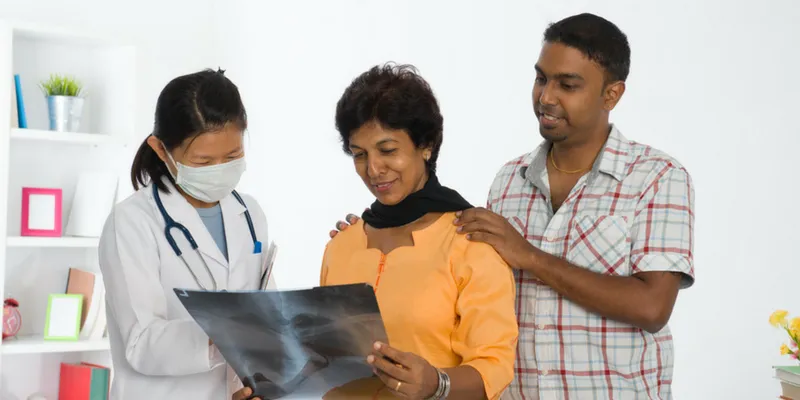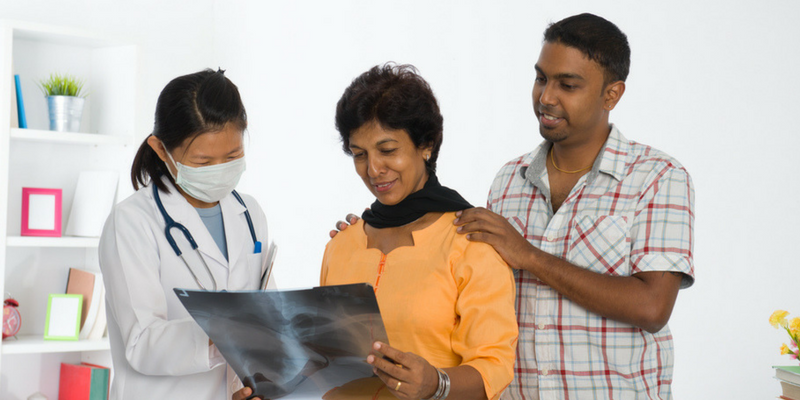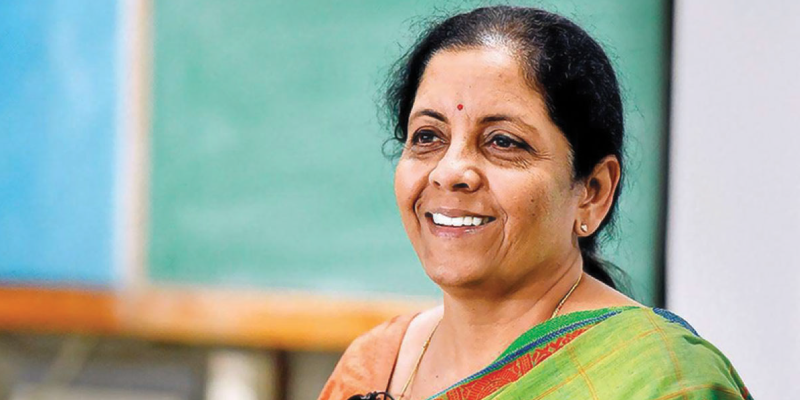Cancer — it alters your life but it's not the end
What to do after cancer has been diagnosed? How do we approach the biases and prepare for the battle ahead?

‘Cancer’— the six-letter word has the power to shake the foundations of not just the patient but the entire family and well-wishers.
Why did it come to my body? How did it happen? Is this it? What next?
These questions and more engulf one’s mind and emotional space, often crippling and numbing the brain. In the haze of this unfortunate and startling news, individuals and families lose out precious time which can be utilised to battle this disease.
Seeking information from personal narratives, survival stories to nutritionists and medical experts — below we discuss various ways to approach cancer and its turmoil.
1. Know your disease
Diagnosis of cancer is life altering.
Cancer evokes a multitude of feelings ranging from disbelief and denial, to anger and frustration, and subsequently, depression. In this chaos of emotions, very often one fails to grasp the nature of the disease.
“The psychological state of the patient and the entire family needs to be considered. In the face of a serous diagnosis, when you are dealing with so much of stress, the ability to understand everything also gets skewed— which is normal and this happens with everybody,” says Dr Akhil Kumar, a medical oncologist.
Often the lack of clarity in communication leads to confusion and the patient is left dissatisfied with the doctor. At this juncture, it becomes important for the family to seek information about the nature of the disease itself.
As prevalent in the United States of America, India does not have the trend of psychological counselling wherein professionals counsel both the patient and family before and after meeting the doctor.
“This visit is essential to ensure that the patient and the family really understand the disease and get the answers to their questions, if any,” says Dr Akhil, who trained at the Rutgers Cancer Institute in New Jersey.
It is important for the family to seek information, be it from the internet in the digital age, and understand the various approaches available to fight this disease. With advanced studies, new medicines and treatment methods to combat the toxicity of cancer are becoming a reality.
2. Second opinion
It becomes imperative for both the patient and the family to seek multiple opinions from different doctors — both medical and surgery oncologists — to gain more clarity of the options available for treatment.
“When you initially receive the news about cancer, there will be a shock factor. You will absorb some information, but there might be selective hearing; hence, it is necessary to go for a second opinion . Eventually, for everybody, the situation is very unique but multiplicity of opinions means that no one approach is perfect,” says Dr Akhil.
He explains that every doctor brings in a different experience. While no one will give you a contradictory opinion, they will position treatments differently— some will prefer radiation before chemotherapy; some may not even opt for a chemo. Depending on an individual’s situation, there are varied approaches that can be taken.
“Even if you did not have an optimal communication with the doctor, but have received a similar message from two to three other doctors, at least you will be satisfied that you are doing the right thing,” he adds.
Eventually, one needs to understand the different perspectives, assimilate them, and then make the final decision.
3. Eat right
One of the most important steps towards cancer care and treatment is the in-take of a nutritious diet. Studies reveal that a diet rich in antioxidants is highly beneficial in the prevention of cancer, even for those who are battling the disease.
“The fact that someone has cancer means that their body is sick and it needs the right nutrition to recover; to build your immunity," says Luke Coutinho, a holistic nutritionist from Integrative & Lifestyle Medicine.
“There are some foods that create more inflammation and mucus in your body, creating acidity and allowing the body to have the right environment for cancer cells to spread; hence, it is important to follow a smart diet, omitting the food that helps cancer cells to grow, and empowering the body with the nutrition which boosts immunity,” he adds.
For starters, sugar should be avoided.
Until recently, there was no scientific explanation for the co-relation between sugar and health problems and diseases such as cancer and heart attacks. However, in November last year, a new study published in PLOS Biology journal revealed that sugar led to elevated levels of an enzyme associated with bladder cancer.
“Food rich in nutrition provides our cells with the necessary building blocks for regeneration. One important element in the diet for cancer prevention is the addition of Vitamin D,” says Sheela Seharawat, Founder of Diet Clinic.
Further, one should increase the consumption of fruits and vegetables such as broccoli, spinach, wheatgrass; and herbs such as ginger, thyme, cayenne pepper, oregano, basil, and parsley. These are good immune boosters and help in preventing the growth of cancer in the body.
A good cancer prevention diet consists of foods such as raw and fresh vegetables, raw seeds and nuts, and whole grains. Consuming fruits and vegetables in their nearest natural form helps the body absorb extra nutrients that are lost to a certain extent in the cooking process.
4. Exercise and yoga
Lack of physical activity leads to obesity. This is well known.
However, in August 2016, scientists revealed that obesity and lack of exercise leads to increased risks of 13 types of cancers. Additionally, evidence indicates that physical activity may reduce the risks of several cancers through other mechanisms, independent of its effect on obesity.
Exercise has a number of biological effects on the body. This includes lowering the levels of hormones, such as insulin and estrogen, especially in cases of breast and colon cancer.
Recommending regular yoga to cancer patients and survivors, Prabha Krishna, chief yoga specialist from Yogabharti, says,
“Yoga not only contributes to the complete well-being of a person but also heals serious health conditions. Healing starts with the first few sessions of therapy yoga — the person feels a sense of calm, satisfaction, gradual increase in stamina, and decrease in pain. It takes time depending on the severity of the health condition, but one feels the positive changes by learning to be attentive towards the body.”
Further, exercise also reduces inflammation while improving the immune system.
5. De-stress
When dealing with cancer, doctors often say, “Be positive. Cancer is not a sprint, but a marathon.” Indeed, this is true, for the treatment procedure itself is taxing and takes a toll on a patient’s body.
“Cancer treatment is not easy. The first week after chemotherapy is the worst, for your body is fighting the toxicity from both the medicine and the disease. After around 10 days, when your body starts accepting food and regains some strength, you mentally need to start preparing for the follow-up chemotherapy in the forthcoming week,” recalls Sumati Krishna, a lung cancer survivor.
Cancer not just affects the patient but it alters the life of family and loved ones as well. While the rigorous treatment procedure proves to be hectic, it is recommended that individuals engage in work and hobbies to de-stress themselves, especially by engaging with creative processes to express their emotions and their battle with cancer. Keeping a journal can be cathartic.
“There is so much emphasis on conventional treatment that no one looks into what happens to the patient, their lifestyle, their food habits, their movement, and the emotional baggage that is being carried,” remarks Samara Mahindra, Founder of Cancer Recovery and Rehabilitation (CARER) programme.
6. Speak of the pain
Last but not the least, it is essential for the family members to care for themselves as well. The negativity surrounding cancer also affects the loved ones for there are a very few cancer survivors’ stories today.
“The reaction that people have towards cancer stems from a lack of knowledge. It initiates a response of ‘Oh my God! this person is in a really bad situation’ and that makes it worse for the patient going through cancer,” Samara says.
The patient and the family do not need sympathy; rather they need positive energy and a constructive environment to regain strength and prepare for the battle ahead. Further a positive atmosphere also leads to better mental health and helps in the regeneration of cells and boosts immunity.
In fact, with cancer there is often anticipatory grief — the feelings of sadness and loss we feel even before a loss occurs; hence, at this juncture, it becomes imperative for the family to also seek counselling and discuss the pain they are feeling.
“When we coach and counsel, we counsel the family as well — they are very much a part of this. Often, we ignore them but they are as much an integral part of the patient’s healing as a medical team is,” Samara adds.
Cancer is battle fought collectively. Strength is required for both the patient and the family— to bear the pain of treatment and witness the loved one undergo hardship.
“My mother was not immune to the pain we all were undergoing throughout the cancer journey. We couldn’t express ourselves to her directly. But an outlet to the grief was essential, for we needed to be strong in order to be able to take care of her,” Sumati’s daughter Sriya recalls.
It’s a pause, not the end
There is a growing need to approach cancer holistically for varied factors contribute to the treatment procedure. Most importantly, this battle cannot be fought alone. Apart from awareness, one can counter myths and fear about cancer with positivity and a fearless attitude towards what has to come. As Samara Mahindra says, cancer is a pause, and not the end of the road.










![[Startup Bharat] Y Combinator-backed BeWell Digital is enabling the digital transformation of radiologists](https://images.yourstory.com/cs/2/40d66ae0f37111eb854989d40ab39087/ImagesFrames31-1648033042143.png)
